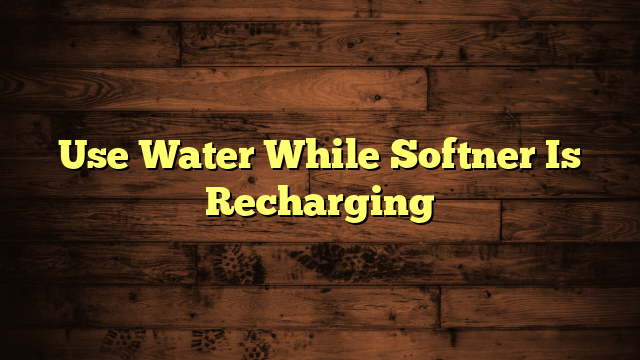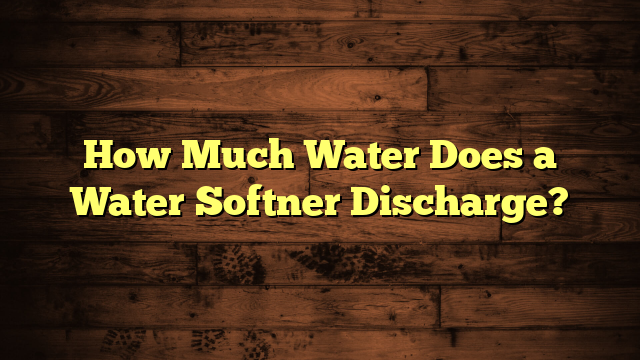Will Water Softner Improve Water Pressure?
Imagine you're in the shower, and the water pressure suddenly drops, leaving you frustrated. You might wonder if installing a water softener could solve the issue. While water softeners are effective at improving water quality by reducing hardness, they don't directly boost water pressure. However, the relationship between hard water and pressure can be more complex than you think. Understanding this connection could reveal other options that may address your low pressure predicament more effectively. What else could you consider in your quest for consistently strong water flow?
Key Takeaways
- Water softeners improve water quality by reducing hardness but do not directly increase water pressure.
- Low water pressure is mainly influenced by plumbing infrastructure, including pipe size and blockages.
- Scale buildup in pipes can restrict water flow, so softeners help mitigate this issue.
- For effective pressure enhancement, consider solutions like pressure boosters or flow regulators.
- Regular maintenance and evaluation of plumbing systems are essential for optimal water pressure management.
Understanding Water Softeners
Water softeners are essential devices that help transform hard water into softer, more manageable water. When you're dealing with hard water, the minerals like calcium and magnesium can cause scale buildup in pipes and appliances, leading to inefficiencies.
Understanding the various water softener types and softening methods can help you choose the right one for your needs.
There are primarily two water softener types: ion exchange softeners and salt-free softeners. Ion exchange systems work by swapping hard minerals with sodium ions, effectively softening the water.
Salt-free systems, on the other hand, don't remove minerals but rather alter their structure, preventing scale buildup without adding sodium to the water.
In terms of softening methods, you might encounter traditional salt-based options, which require regular maintenance, or newer technologies like reverse osmosis and magnetic softeners.
Each method has its own pros and cons, so weighing these factors can help you make an informed decision.
How Water Pressure Works
Understanding how water pressure works is key to ensuring your plumbing system operates efficiently. Water pressure refers to the force that pushes water through your pipes, and it's essential for delivering water to your taps, showers, and appliances. Various factors affect water pressure, including pipe diameter, elevation, and water source.
To help you grasp the concept, here's a quick reference table outlining the main aspects of water pressure:
| Aspect | Description | Pressure Measurement |
|---|---|---|
| Source | Where the water comes from (e.g., municipal, well) | PSI (pounds per square inch) |
| Pipe Size | Diameter of pipes affects flow rate | GPM (gallons per minute) |
| Elevation | Height difference between source and outlet | Bar (1 bar = 14.5 PSI) |
You might notice that higher elevation leads to reduced pressure, while wider pipes can enhance flow. Keeping an eye on these factors will help you maintain ideal water pressure in your home, ensuring a smooth and efficient plumbing experience.
The Role of Hard Water
When you live in an area with hard water, the minerals—mainly calcium and magnesium—can create a range of issues for your plumbing system.
One of the most significant hard water effects is the mineral buildup that occurs in pipes and fixtures. Over time, this buildup narrows your pipes, reducing water flow and pressure. You might notice that your showers aren't as forceful, or your appliances aren't operating as efficiently as they should.
The mineral buildup doesn't just affect water pressure; it can also lead to expensive repairs. As the accumulation grows, it can cause clogs that require professional intervention, and that's something you'd likely want to avoid.
Additionally, you may find that your water-using appliances, like dishwashers and water heaters, don't last as long due to the strain from hard water.
Effects of Scale Buildup
Scale buildup can seriously impact your plumbing system, leading to reduced water flow.
As minerals accumulate in pipes, they create blockages that restrict how easily water moves through your home.
If you're noticing a drop in water pressure, it might be time to reflect on the effects of scale buildup.
Scale Buildup Impact
Experiencing low water pressure can often be traced back to the effects of scale buildup in your plumbing system.
Over time, minerals like calcium and magnesium accumulate in your pipes, leading to reduced water flow. This scaling narrows the diameter of your pipes, making it tougher for water to get through. You might notice that your showers aren't as powerful or that your faucets are trickling instead of flowing freely.
Regular plumbing maintenance is key to preventing scale buildup. If you neglect this, you could face expensive repairs down the line.
Scale removal is essential to maintaining ideal water pressure and ensuring your plumbing system functions efficiently. You can use descaling solutions or consider installing a water softener to combat this issue.
Water Flow Restriction
As mineral deposits accumulate in your plumbing, water flow restriction can become a significant issue. These deposits, often formed from hardness minerals like calcium and magnesium, can narrow your pipes over time.
As a result, you might notice a decrease in water flow, affecting your daily tasks like showering or washing dishes. This restriction doesn't just impact convenience; it can also lead to inconsistent pressure regulation.
When your pipes are clogged, water struggles to move freely, causing fluctuations in pressure. You may experience bursts of high pressure followed by low flow, making it frustrating to use multiple fixtures at once.
Installing a water softener can help mitigate these problems. By reducing the hardness of your water, it minimizes scale buildup, keeping your pipes clear and maintaining ideal water flow.
With improved water quality, you'll likely notice a more consistent water pressure, allowing for smoother operation of your plumbing fixtures.
Water Softener Installation Benefits
Installing a water softener can greatly enhance your home's water quality and overall plumbing efficiency. By removing hard minerals like calcium and magnesium from your water, you'll notice a significant improvement in how your water feels and tastes. Softer water results in less scale buildup in your pipes and appliances, leading to fewer clogs and a longer lifespan for your plumbing system.
During the installation process, you'll likely start noticing these benefits almost immediately. As your water quality improves, you might find that your soap lathers better, your dishes come out cleaner, and your skin feels softer after a shower.
Plus, you won't have to deal with those pesky hard water stains on your fixtures and glassware anymore.
Another advantage is that softer water can improve the efficiency of your appliances. For example, your washing machine and dishwasher will work better, using less detergent and energy.
Common Misconceptions
Many homeowners mistakenly believe that installing a water softener will directly increase their water pressure. This is one of the common errors people make when considering water treatment options. While a water softener can improve the quality of your water by reducing hardness, it won't necessarily boost the pressure.
In fact, the pressure you experience is primarily influenced by your plumbing system, including pipe size, age, and any existing blockages.
Another myth debunked is the idea that softened water flows more freely than hard water. While softened water can reduce scale buildup in pipes, the overall flow rate is still governed by your plumbing infrastructure.
If your pipes are narrow or clogged, a water softener won't fix those issues.
It's essential to understand that water softeners are designed for specific purposes, like reducing mineral content, rather than enhancing pressure.
If you're experiencing low water pressure, it's better to investigate your plumbing system or consider other solutions.
Alternative Solutions for Pressure
If you're dealing with low water pressure, exploring alternative solutions can lead to more effective outcomes than relying solely on a water softener.
One of the most straightforward options you might consider is installing a pressure booster. These devices increase the pressure of water flowing through your pipes, ensuring that you get a strong, consistent flow to all your fixtures. They work by utilizing a pump that activates when the water pressure drops, giving you the boost you need.
Another solution is to use flow regulators. These devices help control and balance the water flow, making it easier to manage pressure throughout your home. By installing flow regulators, you can target specific areas where water pressure is lacking, allowing for a more balanced distribution of water.
Both pressure boosters and flow regulators are relatively easy to install and can provide immediate improvements.
They're particularly beneficial if you live in an area with fluctuating water pressure or if your home has older plumbing. By considering these options, you can enhance your water pressure effectively without solely depending on a water softener.
When to Seek Professional Help
Recognizing when to seek professional help for water pressure issues can save you time and prevent further complications. If you notice any of the following signs needing help, it's a good idea to get a professional evaluation:
- Persistent low water pressure that doesn't improve with simple fixes
- Sudden changes in pressure, like drastic drops or spikes
- Unusual noises coming from your plumbing system, such as banging or hissing
- Visible leaks or water damage around pipes or fixtures
Ignoring these signs can lead to more significant problems down the line, including costly repairs or water damage.
A qualified plumber can diagnose the root cause of your pressure issues and recommend appropriate solutions tailored to your home. They can also evaluate your water softener system to determine if it's contributing to the problem.
Don't hesitate to reach out for help if you suspect that your water pressure issues are beyond DIY fixes.
Taking prompt action guarantees that your plumbing system remains in peak condition and can save you from more severe complications later on.
Frequently Asked Questions
Can a Water Softener Cause Low Water Pressure Issues?
Yes, a water softener can cause low water pressure issues. If it's improperly sized or clogged, you might notice pressure fluctuations, affecting the overall water flow in your home. Regular maintenance helps prevent this problem.
How Often Should I Maintain My Water Softener?
You should follow a regular maintenance schedule for your water softener to guarantee peak softener performance. Typically, checking it every six months and replenishing salt as needed keeps it running smoothly and efficiently.
Will Water Softeners Affect My Water Heater Efficiency?
Water softeners can enhance your water heater's efficiency by reducing scale buildup. Regular water heater maintenance, combined with softened water, leads to significant efficiency improvements, ultimately saving you energy and prolonging your water heater's lifespan.
Can I Install a Water Softener Myself?
You might think installing a water softener is too complicated, but with some DIY spirit, you can tackle it! Just familiarize yourself with the components, and you'll manage the installation smoothly. Don't hesitate to try!
Are There Any Health Risks Associated With Softened Water?
Softened water's health effects can vary. While generally safe, it contains higher sodium levels, which might concern those with hypertension. Always consult your doctor if you have health issues before relying on softened water regularly.
Conclusion
While a water softener can't boost your water pressure directly, it plays an important role in preventing scale buildup that can choke your pipes. Think of it as a silent guardian, improving water quality while indirectly supporting better flow. On the flip side, if you're facing low pressure, it's vital to explore pressure boosters or flow regulators. Balancing water quality and pressure is key—without one, the other can falter, leaving you with less than ideal performance in your home.







